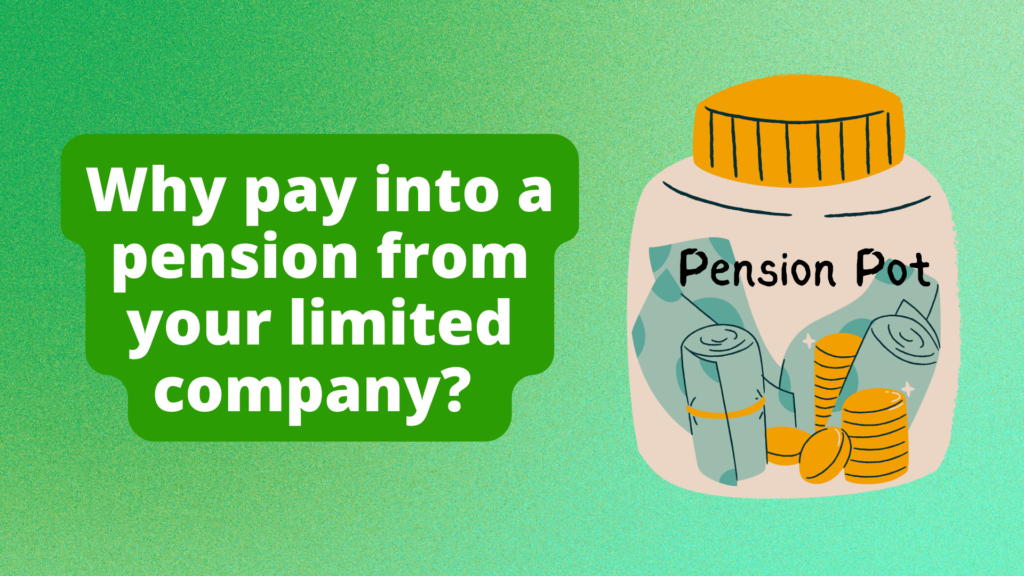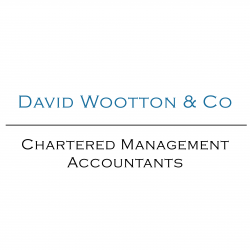If you run your own limited company, you’ve probably got an extensive to-do list – and pension planning often falls to the bottom.
But as a company director, there’s a big opportunity here. Paying into a private pension directly from your business can be one of the most tax-efficient decisions you make. Here’s how it works, and why it’s worth your attention.

Do I need a pension as a company director?
Pensions aren’t just for employees working 9 to 5. As a company director, you’re responsible for your own financial future. That means setting aside money now to make sure you’re comfortable later. And unlike savings accounts or ISAs, pensions come with some very attractive tax perks, especially when paid through your limited company.
Tax advantages are the real game-changer
If your limited company makes pension contributions directly into your private pension (also known as an employer pension contribution), you can reduce your corporation tax bill.
That’s because pension contributions are considered an allowable business expense – provided they meet HMRC’s “wholly and exclusively” rule, meaning they’re made for the purposes of the business (which they are, in this case, as part of your remuneration package).
Imagine your company pays £10,000 into your pension. That £10,000 is deducted from your profits before corporation tax is calculated. If you’re paying the standard 25% corporation tax, that could save your business up to £2,500 in tax. So you’re effectively investing in your future and lowering your tax bill.
No National Insurance
Another bonus: unlike salary payments, employer pension contributions aren’t subject to National Insurance (NI). If, like many directors, you’re paying yourself mostly in dividends and want to avoid bumping up your PAYE salary, pension contributions are a savvy way to boost your long-term income without the usual NI costs.
Carry forward benefit
If you have a large amount you’d like to contribute, you may be able to benefit from the ‘carry forward’ rule.
This lets you use any unused annual allowance from the previous three tax years as long as you’ve been a part of a registered pension scheme during this time.
So, if you haven’t used your total allowance over the last three tax years, you can use the leftover amount to boost your contributions this year.
How to make the contributions
Setting it up is simpler than you might think. If you already have a personal pension, you can usually just inform your provider that you’ll be making contributions from your limited company, not from your personal bank account.
Then, your company makes the payment straight from the business account into the pension. You’ll want to keep clear records of these transactions for your accountant, especially around your year-end accounts.
It’s always worth getting your accountant involved to make sure everything is recorded correctly and the contributions fall within annual limits.
For the 2025/26 tax year, most people can contribute up to £60,000 into their pension tax-free (this includes all personal and employer contributions), though this limit might be lower if you’re a high earner.
Wider reach
If your spouse works for the business (and is on payroll), your company could also make pension contributions on their behalf – assuming it’s a genuine employment arrangement. This is another way to keep money in the family and make use of more tax allowances.
Final thoughts
Paying into a private pension directly from your limited company isn’t just a smart tax move. It’s also a solid step toward building financial security for later life. It’s one of those rare win-win scenarios where you save on tax now and set yourself up for the future.
Of course, everyone’s circumstances are different, so it’s wise to speak to a financial adviser or accountant before jumping in. But if you’re a company director looking to make the most of your business profits, this is definitely something to have on your radar.
Don’t leave retirement planning on the back burner – it could be one of the most rewarding business decisions you make.
As Lune Valley accountants we provide limited companies with tax advice, company accounting and payroll services. Get in touch.

